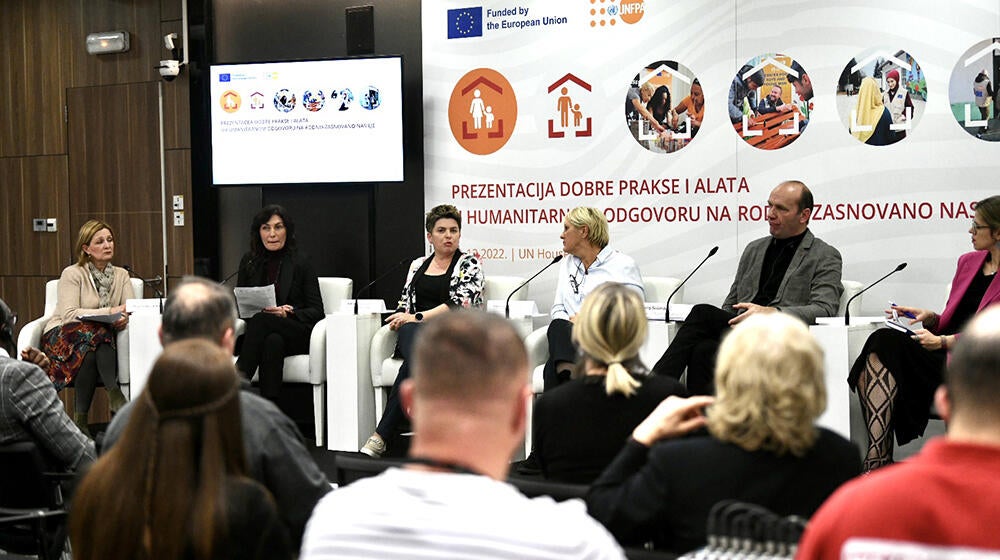Sarajevo, 1 December 2022 - A conference: “Presentation of good practices and tools in the humanitarian gender-based violence response” was organized today in Sarajevo by the UNFPA, the United Nations Population Fund in cooperation with the Delegation of the European Union in Bosnia and Herzegovina.
The Conference gathered representatives of governmental institutions, health care providers, humanitarian agencies, civil society, and other institutions in Bosnia and Herzegovina, to learn about the good practices summarized in four documents, developed by the UNFPA and EU, intended for BiH institutions taking over the full management and coordination of gender-based violence response in all emergencies.
UNFPA, BiH authorities and the EU have been jointly building solutions to tackle emergency and humanitarian situations since 2018. This was achieved through building robust capacities, mechanisms, policies, and systems of all stakeholders in the country – from public institutions to civil society partners – all in an effort to ensure that the country as a whole can ensure a sustained, domestic response in any future emergency setting, said John Kennedy Mosoti, UNFPA Representative in the Bosnia and Herzegovina.
European Union is fully supporting comprehensive, sustainable and solution oriented approach to manage effectively mixed migratory flows in Bosnia and Herzegovina with specific focus on the vulnerable groups. Gender based violence is unacceptable in any society or environment. Through UNFPA, we are helping those who need our help the most and empowering local stakeholders to continue doing so, said Karel Lizerot, First counsellor, Head of Section for justice and home affairs, migration and public administration reform at the Delegation of the European Union to Bosnia and Herzegovina
Dr. Halida Ljubić, representative from the Health Care Centre Bihać said: “With the support of the UNFPA and European Union I was able to access numerous professional development opportunities such as Minimum Initial Service Package for Sexual Reproductive Health in crises which have equipped me with the necessary knowledge and skill to be able to ensure that quality of services will remain in any future crises.”
Note to the editors:
The project “EU Support to Migration and Border Management in BiH” is funded by the European Union through an Instrument for Pre-Accession Assistance (IPA) special measure, and implemented by the International Organization for Migration (IOM) in partnership with United Nations High Commissioner for Refugees (UNHCR), United Nations Children's Fund (UNICEF), and the United Nations Population Fund (UNFPA).
###
For more information please contact: Majda Prljača, UNFPA, prljaca@unfpa.org or +38761171673


